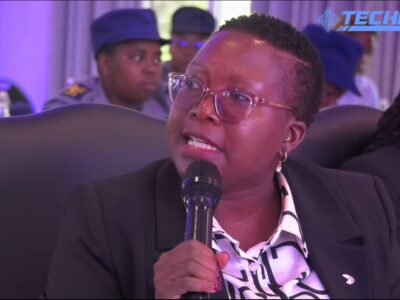Zimbabwe is rapidly establishing itself as a fertile ground for scalable Financial Technology (fintech) solutions, with leading local financial institutions driving this transformation. By leveraging technology, they are bridging financial inclusion gaps and redefining service delivery across the country.
This was highlighted at the recently concluded Strategy Execution Advisory Talks (Seat) Summit 2025, held in Victoria Falls.The summit ran under the theme: “Harnessing and Optimising Technology for Business Growth and Success.”
Speaking at the summit, Mr Agrippa Mugwagwa, Managing Director of Xarani FBC Holdings’ fintech subsidiary emphasised that banks alone cannot close the financial inclusion gap due to the high risks and costs involved.
By Ropafadzo Mashawi
He argued that the solution lies in scalable fintech ecosystems, built on solid foundations and inspired by successful models already making an impact across Africa.“Xarani Fintech is pioneering AI-driven solutions to reduce costs and expand access. Our AI-powered Know Your Customer (KYC) systems have cut onboarding costs by 70 percent crucial for reaching rural populations and informal workers,” said Mr Mugwagwa.
He noted that Xarani has developed interoperable platforms and forged partnerships with telecommunications companies, banks such as Steward Bank and NMB, and government-backed digital ID systems.
Mr Mugwagwa highlighted that Zimbabwe’s fintech ecosystem thrives on collaboration, citing mobile money agents, USSD banking, and voice-enabled interfaces in local languages as key enablers of inclusion. He pointed to Kenya’s M-Pesa as a model of success, built on mobile penetration, regulatory flexibility and public trust.“With 650 million smartphone users in Africa and US$500 billion in annual mobile money transactions, the potential is vast,” he said.
Also speaking at the summit, Mr Samuel Matsekete, Group Chief Executive Officer of Old Mutual Zimbabwe and Head of Banking Portfolio for the Rest of Africa, shared how Old Mutual has embraced fintech innovation. The company launched its O’mari mobile money wallet in 2023, positioning itself as a trailblazer in the sector.
“The platform integrates USD and ZWG wallets, offering insurance, nano-loans and bill payments all accessible via feature phones or smartphones. This comes as 83 percent of adults now use formal financial services, up from 69 percent in 2014, with women’s inclusion rising from 68 percent to 83 percent,” he said.
Behind the scenes, Old Mutual has implemented Robotic Process Automation (RPA), which has reduced manual workloads by 92 percent, cutting both errors and operational costs. Investments in AI and data analytics have enabled hyper-personalised services, from credit assessments to funeral plan management.
Both institutions underscored the importance of partnerships. Old Mutual’s O’mari integrates with ZimSwitch, Zimbabwe’s national payment switch, while FBC collaborates with telecoms such as Econet to expand agent networks.
Regulatory sandboxes, cryptocurrency policies (such as the recognition of ZiG), and open banking mandates were identified as critical enablers of fintech growth.With traditional banking penetration still low,savings at just three percent of GDP and insurance penetration at 3.6 percent innovators are increasingly turning to digital tools to reach the unbanked and underserved.














Comments